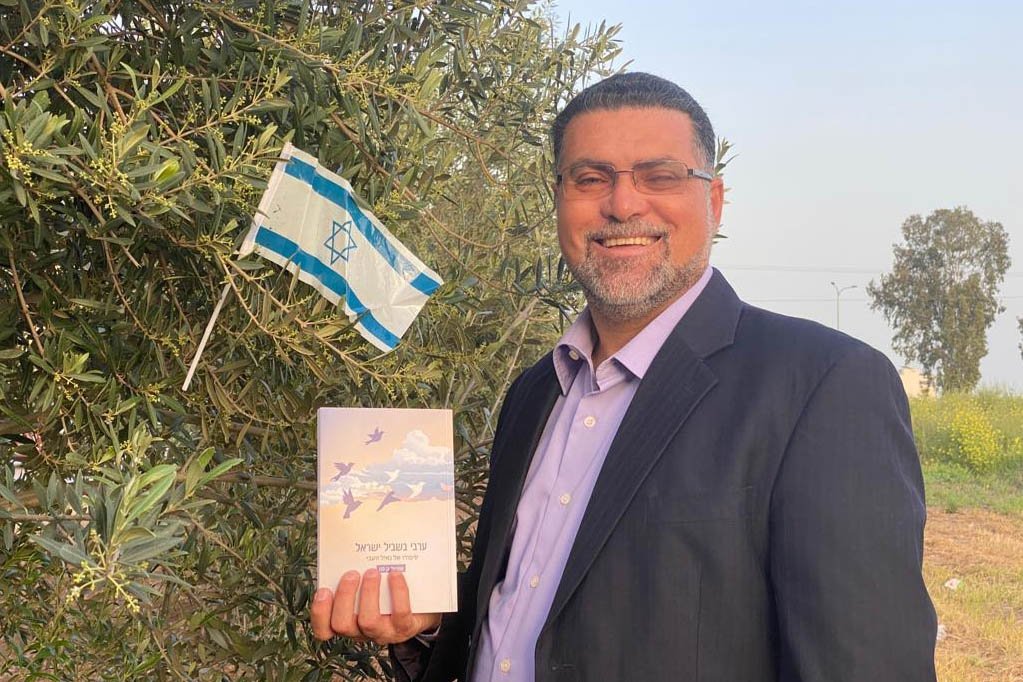
One of the most significant moment in Na’il Zoabi’s life was meeting with Racheli Frankel, the bereaved mother of Naftali Frenkel, who was kidnapped and murdered in Gush Etzion in the summer of 2014. Zoabi was the principal of the elementary school in the Arab city of Tamra at the time, and he came to comfort the grieving family.
“When I got close to her, I felt how much she needed it, even though I was a stranger and she was a religious woman,” Zoabi recounts. “She could tell that I had taken the difficult step to show up. I realized that every person needs to be comforted.”
In the years since, Zoabi has taken it upon himself to meet with other bereaved families.
“I felt compelled to comfort such families. This act is murder, it’s violence, it’s anti-humane and anti-Islamic. It’s very difficult. I don’t think there’s anything like it. The families need reassurance, and someone needs to think about how to stop the attacks. After the murder of Muhammad Abu Khdeir, I also went to the parents and comforted them,” Zoabi says, referring to a Muslim boy who was kidnapped and murdered by Israeli Jews in retaliation for the kidnapping of Naftali Frankel and two other Jewish boys in 2014.
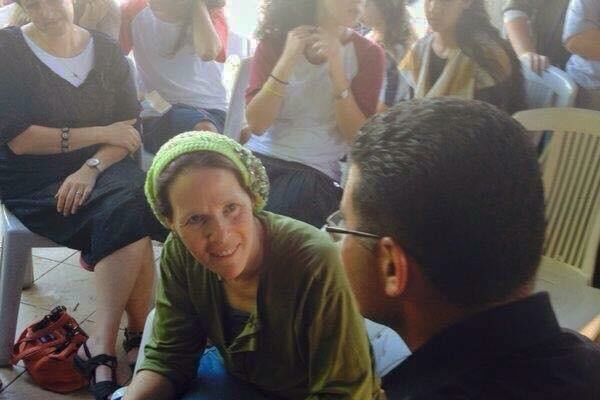
These condolence visits are representative of Zoabi’s iconoclasm and his vision for Israeli society as a whole. In short, Zoabi wants to create a different kind of leadership for Israeli Arabs. He sees the basis for this leadership in envisioning a shared future and letting go of past resentments.
“Everyone who lives in the State of Israel was burned by the war in 1948. Everyone who belongs to this place got burned,” Zoabi says. “Let’s not talk about the past, but about how we’re going to commit to living together. Our lives are short. We’ve done enormous damage to each other. Let’s reach out to each other. What’s past is past. We will be together because God has determined that we are bound to live together.”
Partnership with Netanyahu
In his attempt to realize this vision, Zoabi has joined forces with Benjamin Netanyahu, a controversial figure among Arab Israelis who for many is antithetical to the idea of shared existence between Arabs and Jews. Zoabi ran for Knesset in the 2021 elections as part of Netanyahu’s right-wing Likud list.
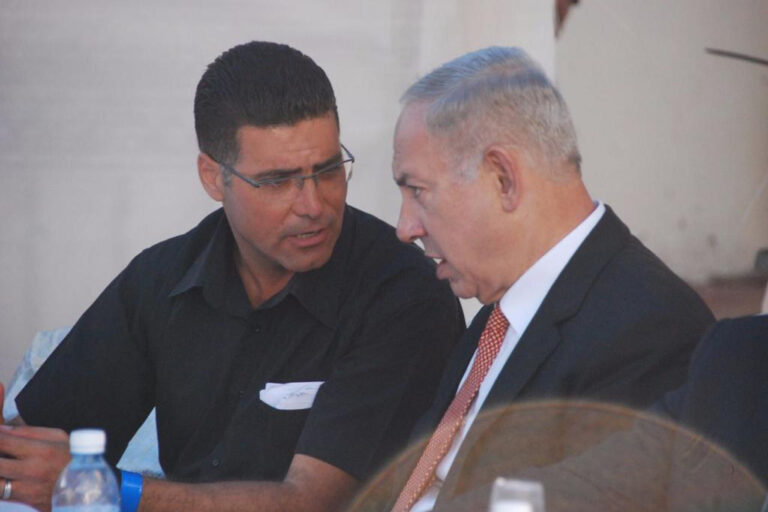
“Netanyahu called on me to join him because he heard about my activism,” Zoabi says. “We spoke at his house for an hour and a half, and he said to me, ‘I hear you, and I’m calling for the integration of Arabs into the country.’ I see it as a step in the right direction. Thanks to this message, [Likud] received 31,000 votes from the Arab population.”
Netanyahu visited Zoabi’s school together with current Prime Minister Naftali Bennett, who was Education Minister at the time. Zoabi faced harsh criticism from fellow Arabs following the visit. In his eyes, this knee-jerk criticism illustrates mainstream Arab society’s misguided attitude.
“They shunned me, they shamed me, [Member of Knesset] Ayman Odeh [chairman of the Arab Joint List party] protested against me,” he says. “What did you protest? Who did you want to come visit the school? I am eager for the heads of the establishment to visit the [Arab] sector and express solidarity.”
A family history of shared existence
Zoabi grew up in Nazareth and now lives in the village of Nin near Afula. Partnership with Jews seems to run in the family: His relative, Seif el-Din el-Zoubi (1913-1986), volunteered for the Haganah Jewish paramilitary organization in the 1930s, and worked as part of its intelligence service, which made him the target of multiple assassination attempts. During the War of Independence, he convinced all the members of his extended family not to join the Arab forces, and the residents of the villages where they lived remained in Israel after the establishment of the state and were not displaced.
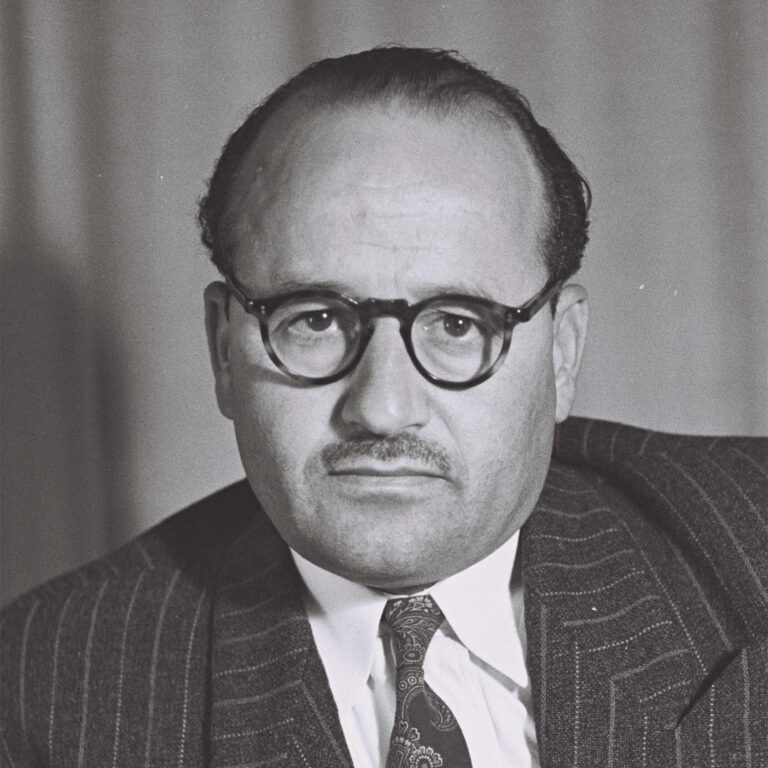
After the establishment of the State of Israel, el-Zoubi turned to politics. He was elected to the Knesset on behalf of various Arab lists that were linked to the socialist Mapai party. He served as Deputy Speaker of the Knesset and Chairman of the Interior Committee. In addition to national politics, he was twice elected mayor of Nazareth.
“His party was part of the government,” says Zoabi, who sees el-Zoubi as an inspiration in terms of leadership and political action.
Legitimate connection to the land on both sides
In Zoabi’s approach to politics, Israel’s Arabs should not apologize for their existence in Israel, nor try to prove that they belong, a fact which he sees as self-evident. He feels the same about Israeli Jews, whose presence in Israel Zoabi fully accepts and understands. But unlike other Arab leaders with similar rhetoric about partnership, Zoabi does not aspire to a bi-national state: rather, he accepts Israel's status as a Jewish state with a Jewish majority, and demands a place within Israel as a citizen with a different identity.
“The Jews came here because of their history and their holy books. That needs to be internalized and not whitewashed,” he says. “The Jewish people were looking to return to the land of Israel, and not to Uganda nor to China. The State of Israel was established, which was supposed to be made up of its countrymen and to embrace them. I’m from this land, and my father was from this land. I have no other country, no other culture and no other past. Now there is a Jewish state, and it needs to contain me.”
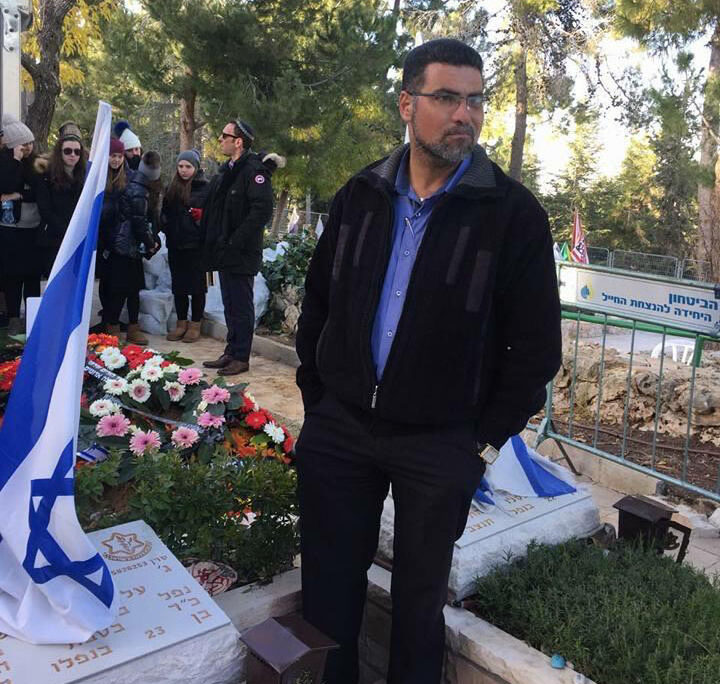
He does not see the different aspects of his identity as contradictory, but rather as complementary to each other.
“I am a proud Israeli, a proud Arab, and a proud Muslim. That’s the change I've been working for for for 15 years. I want to be an integrated citizen, living in the spirit of the Declaration of Independence in a Jewish and democratic state. If we don’t say this, we’re not going to solve the problem.”
Zoabi thinks both Jews and Arabs need to recognize the other’s legitimate connection to the land.
“The messaging shouldn’t be about what do we give and what do we get, but about belonging and about values,” he says. “The street belongs to me, the café belongs to me, the university belongs to me. We should invest in education for all of us, Arabs and Jews, education towards a sense of belonging to the state, the land, its landscapes and its people, towards the acceptance of the other and their inclusion.”
Abandonment of Arab society
Zoabi is highly critical of the Arab parties, which he accuses of focusing on the struggle against occupation and neglecting to address the treatment of Arab citizens within Israel.
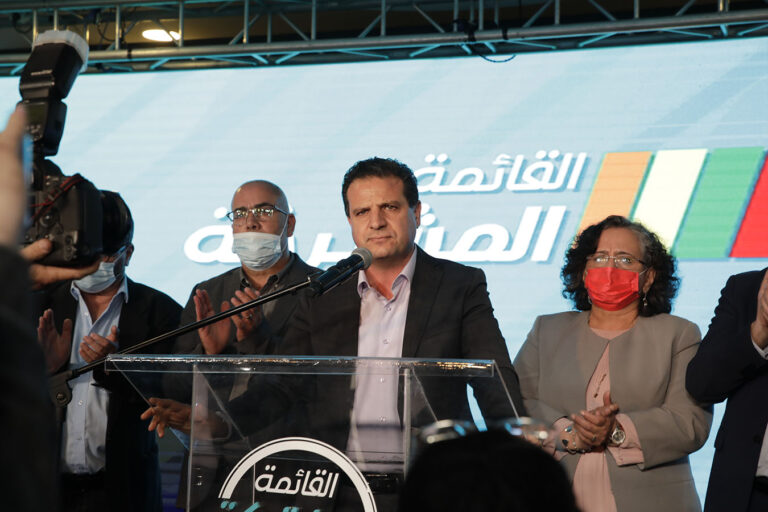
“Arab Members of Knesset should do a serious soul-searching,” Zoabi says. “What have they done for the Arab sector? What have they promoted? And what did they do that can actually be measured? A few work programs for education, employment, infrastructure.
“It’s a moral question,” he goes on. “What we’ve gotten from them is alienation, separation, detachment and a tarnishing of our name as if we were hooligans. They even demonstrated against President Shimon Peres with Palestinian flags, instead of actually coming up with plans to deal with impoverished neighborhoods. There's a lot to be done.”
“You have to initiate things, not just react,” he says. “We need to get into the thick of what’s happening. Jews and Arabs will both forever live in the State of Israel. This cannot be changed. What weighs on me as an Arab citizen is the Arab leadership that does things that border on shameful, when they don’t condemn the violence and don’t differentiate between politics and real life. Ayman Odeh called on Arab soldiers [in the IDF] to drop their weapons [following clashes at the Temple Mount]. He said that for ratings.”
He mentions the Arab attitude towards police in the context of increasing crime in Arab society as an example.
“For decades, the Arab parties have tried to antagonize Jewish society,” Zoabi says. “They called police officers intruders. They gave the police a bad name in the Arab sector in order to garner votes. They spoke out against the opening of police stations in the Arab sector. Then when crime reared its head, they called for police involvement.”
“Now they’re saying, yes soldiers, no soldiers. As far as I'm concerned, it doesn’t matter who it is [who provides security within Arab towns], what matters is that confidence is restored to the [Arab] sector,” he continues. “You could even involve the Shin Bet and declare a state of emergency in the sector.”
Ra’am, an Islamic Movement party that sits in the coalition and is focused on improving the daily lives of Arab citizens, is also part of the problem in Zoabi’s view. Nor is he impressed by President of the Palestinian Authority Mahmoud Abbas's declaration that Israel is a Jewish state.
“Abbas says one thing in Hebrew and something else in Arabic,” Zoabi says. “He doesn’t show up with the [Israeli] state flag in Arab society. He doesn't say 'I want an education towards belonging to the state.’” (Abbas has in fact also said in Arabic that Israel is a Jewish state.)
A critique of Zionist as well as Arab political parties
Zoabi also criticizes the Zionist parties, especially those on the left and the center, for abandoning the cause of Arab advancement.
“Past Zionist leadership past saw contact with the Arab sector as a moral cause,” he explains. “When I was growing up in Nazareth, I remember the mayor being from the [Zionist] Labor Party. Even the National Religious Party had a list [in Nazareth]. Where is Labor [in Arab society]? Where’s [the socialist Zionist party] Mapam? Why is this partnership gone?”
For Zoabi, this is a sorely missed opportunity.
“The fatal mistake is that the Zionist parties left the [Arab] sector after 1980. The politicians didn’t understand the importance of the relationship, and they moved away. Maybe out of cost-benefit calculations. It was an irresponsible act, which was followed by the Arab parties [abdicating their responsibilities]. Until then, they had a few mandates, and today they're acting like they own the place. They don't change.”
As Zoabi sees it, Jewish citizens, and certainly Jewish politicians, have a responsibility to the Arab public with whom they share the country.
“I insist that Jewish citizens get to know Arab citizens. It’s an existential national mission,” he declares. “To know is not just to go on a tour of Nazareth, it is to know what is happening in the community, to be involved, to listen and to speak out. A Jew who cares should demand to make the Arab sector present in the country and to make the State of Israel present in the Arab sector. Right now, it’s absent.”
A different kind of Islam, a different kind of Arab
Zoabi speaks out against extremist interpretations of the Koran.
“There’s ignorance about Islam,” he says. “The Koran speaks of peace, not violence, of including the other, and has a total prohibition on murdering people. The main value of the Koran is peace, including those who are different, and helping the needy.
“A Muslim is a man who believes in prophets, in the Holy Books, in angels, and in judgment day. It’s something shared by everyone. The terrorists are dragging us to dark places in the name of Islam. We need to expose what Islam really is, to read the Koran, and to make our case.”
He’s determined to be a different kind of Arab voice within Israeli society.
“My voice is the voice of the silent, sane Arab majority,” he says. “It’s a voice that needs to be heard all over the world. We have leadership that has tarnished us. This is not an apartheid state. We are Arabs who are fed up with war, and we want to be understood as human beings who are raising families.”
This article was translated from Hebrew by Leah Schwartz.






